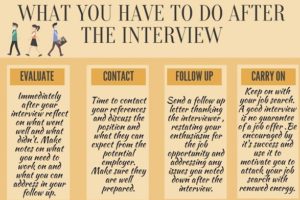
Smart skills candidates should learn for landing on their dream job.
Dream Job is no more a distant dream for job seekers with a few simple tricks.
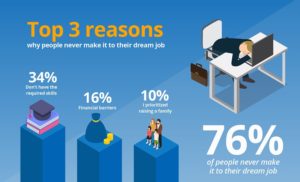
After months of studying, you will be excited to embark on your new career path with a degree in hand. But when you first start applying to jobs, it can be overwhelming to try and figure out what employers are looking for.
You will be confident that your education will give you the technical skills you need, but the interview process still bothers you. Positions at the best firms can be competitive, even in growing industries.
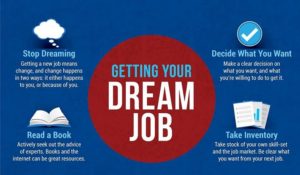
So, what can you do to make yourself stand out as a qualified job candidate to reach your dream job?
In this article, we have explained seven talents that can serve as a pillar for you to reach your dream job. Employers consider these as a foundation more decisive than any niche skillset, and employees with these skills always do better than their counterparts.
- Effective Communication.
No matter what area of work you are working in, communication will be a crucial factor in your ultimate success. It might involve proffering information to a client, telling your requirements to a supervisor, or collaborating with your peers. It might be mostly phone-based, written, or face-to-face. In today’s world, the modes of communication are practically unlimited, but the baseline skills responsible for ensuring that communication’s success is fundamental. Say what you want to say concisely, precisely, and appropriately, and try to maximise the effectiveness of your messages by picking the proper mediums for them.
- Organisation and Management.
Organisational skills help you better handle the tasks you get and ensure they are well executed. Being organised means, you’ll be more likely to get to work on time, prioritise your responsibilities effectively, and seek the best remedies to problems before they even become severe issues. Management skills are also beneficial in any position; for example, you’ll be able to manage your resources, time, and workload better. Without organisation and management skills, even the most intelligent workers often fall behind or make severe mistakes.
Negotiation is a useful tool to have in almost any position. Having it during the interview process can assure you get the best position possible. For example, if you negotiate strongly, you could acquire a higher remuneration or more competitive benefits. You can use negotiation skills for securing new clients or striking deals with potential partners. Still, it’s also useful in getting last-minute help, decreasing possible points of resistance, and lowering total costs of operation.
- Critical Thinking.
Critical thinking is a process of problem-solving that let you find and address potential weaknesses or fault points in a given context.
- It allows for more creative resolutions to problems,
- Faster evaluation of bad situations, and greater pattern identification in large systems,
- Its applications are practically infinite.
Critical thinkers are proficient of acknowledging, analysing, and solving problems without outside influence. They are always looking for improvements to add to the system.
- Teamwork and Delegation.
While some positions rely on it longer than others, you will always have some level of teamwork to handle in the workplace. When you first start off, that might mean collaborating with your supervisors and a few of your peers, but in your future, it could mean delegating work to your subordinates. Knowing how to work with others effectively and how to play to individuals’ strengths is a crucial skill for progress in your field. The better you grasp how to work in a team, the better you will be able to perform collectively. Without teamwork skills, you will end up slowing the operation down.
- Research and Analysis.
The ability to research and analysis come into play for nearly every conceivable job position. You should conduct prompt research about the company and the services they offer to the public. Being able to find information quickly, review it, and recognize key patterns is essential for practically any job function.
Confidence might seem like a feature, but it can be achieved, honed, and polished just like a skill. You can boost your confidence through sheer practice. The more often you work on something, the more confident you will be in doing it. In some areas, confidence can be a product of your practised habits. For example, if you work on enhancing your body language and elocution and thinking positive thoughts, you will normally come across as a more confident person. You will feel more confident in your regular actions. Confidence leads to greater respect, precision, and efficiency all around.
Some of these skills grow naturally over time as you earn experience in the professional world, but most of the case, you will need to seek them, acquire them, and hone them like you would other skill. Devote yourself to improving each of these individual areas and maximize your chances of getting hired and succeeding in your position.

Reach us at # + 91 77955 47089 or mail us at team@bssrecruit.com the possibility to reach your dream Job
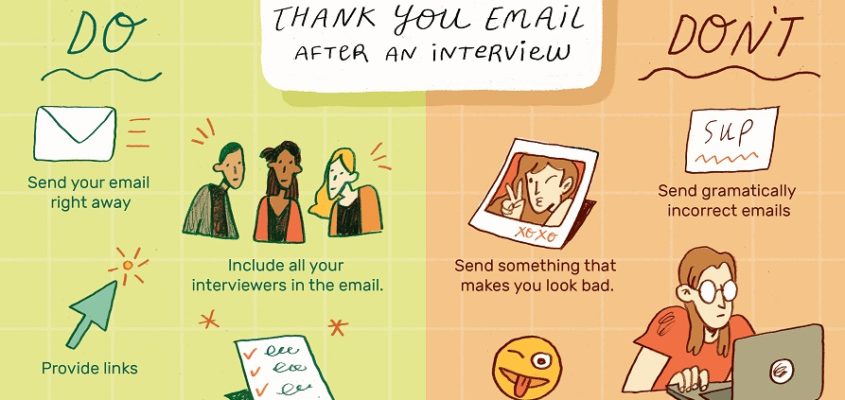
The Go-Getter’s Guide that explains the right way to follow up after an interview
Follow up after an interview
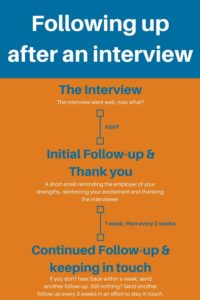
Interviews don’t just end at the moment you walk out the door. After the handshakes and the goodbyes, the major part may be over. But now the potential employers have to start making a big decision, whether you’re the person they’ve been looking for.
The appropriate interview follows up can leave a lasting, positive impression about you in the interviewer’s mind.
How you should follow up entirely depends on a few factors. It is ultimately something you need to opt for yourself. There is no one-size-fits-all solution, and following up is a good idea even if there is another interview to come. It’s worth considering even if you feel you completely nailed it.
Is following up necessary?
If you have never thought about interview follow up before you might be worrying that you have missed a trick. But, the truth is that following up is not a universal requirement, and recruiters do not always expect it. Some people never do it and simply sail into their dream job.
In reality, there are many benefits to appropriate interview follow up. You can follow-up through email, phone, or as a written note or letter.
Is it worth it?
When you get subjected to the rigorous scrutiny of an interview, it’s easy to forget that it can be tough for those doing the recruiting to choose between selections of ideal candidates. Anything you can do in your favour is worth considering.
A simple follow-up mail or quick call can make the difference between success and failure. That’s exactly why it’s so crucial to get it right. Inappropriate or misjudged interview follow up can bring unnecessary impairment to your chances.
How to Follow up after an interview in the right way after an interview
What should you say?
Though there are several approaches to interview follow up, bear in mind these three necessary things.
- It always great to say “thank you” for the interviewer’s time
- Display your enthusiasm for the job position and interest in the work
- Highlight why you are qualified and well-suited to the role
- Add or raise any critical details you forgot to acknowledge in the interview
These points portray what can be done with interviewer follow up. It may not always be essential to touch on all these things. A brief note or thank you letter can do the job.
The major aim of following up is not just to ensure you make an excellent personal impact, but to reinforce why you are the right candidate.
Remember, you were invited to the interview because you got considered to be a serious applicant. Your potential employers genuinely want to know if you are the ideal person for the position. Interview follow up helps them on working this out.
What to consider
An interview follows up sticks a lot on your assessment of what is appropriate. We have designed a list of the most critical factors to take into account:
Time: Ensure you follow up within 24 hours after the interview.
Method: Use the same kind of communication you have had with your interviewer already, creating a natural dialogue
Personality: follow-ups should be personal, so make sure to write with your voice and remind the interviewer who you really are
Formality: follow-ups should be personal, but they should also stay strictly professional, so err on the side of formality if you’re unsure
Reference: remember essential and positive points you have raised during the interview, and refer to them again
Take care: you want to be concise and give a good impression, so put time into your message and edit it until it’s perfect
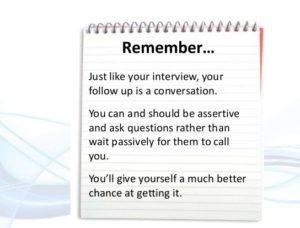
How not to follow up after an interview
While the interview follows up can be a worthwhile endeavour, it only benefits you if you get it right. There is nothing graver than running out of your track to give a wrong impression, undoing the good work of a successful interview.
There are several things to absorb in mind to assure you don’t overstep the mark:
Don’t force it: if you feel following up isn’t a good idea, then don’t. You can send a message to the recruiter if you think it will be well received
Don’t regurgitate: keep it short and don’t duplicate too much from your original application. Try to add something new or point out the key message.
Don’t oversell: you want them to feel a good impression about you, not force your greatness down their throat. So, leave the overselling nature for the interview itself
Don’t request a connection on LinkedIn: whether you get the job or not, wait until the recruitment process is over.
Do it only once! Whatever happens, don’t send them more than one message without a reply, as you may end up irritating them
Don’t go off-topic: keep it professional and focus on the job.
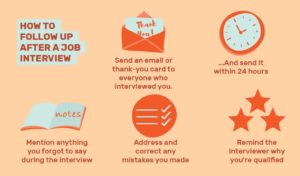
By employing these follow-up strategies, you will improve your chances of getting more offers. You will feel more empowered and efficient throughout the hiring process!
Reach us for Hiring the best candidates with the leading Recruitment consultancy at Hand Phone: +91 7795547089 or Email us at team@bssrecruit.com.
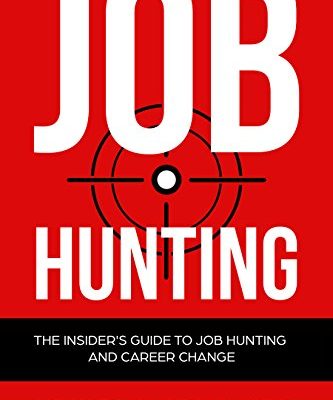
Try these tips from recruiting experts to stand out in your job hunting process
Job hunting
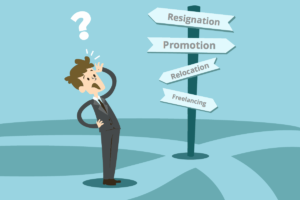
Job hunting is a process in a career. The best way to do Job hunting is explained in detail for the candidates to sail a smooth career growth.
Searching job is one of the most daunting tasks in your career. You might send applications to several positions every day, but you get no response as you imagined. It could be that your CV is getting lost in the pile of the seemingly countless other applicants you’re competing with.
Fret not. You can survive this situation by finding the best ways to distinguish yourself compellingly. In this blog, we have explained what makes a candidate stand out over the others. It will surely help you get placed quickly.
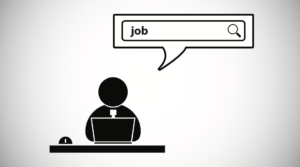
Golden tips to stand out over the others in Job hunting
- Do your homework in Job hunting.
Employers prefer to speak with a candidate who has done a bit of research on the company’s history and culture. Apart from an applicant who submits a generically compiled list of tasks, they appreciate someone who has taken the time to develop their resume specific to the opportunity they have shown interest in. It shows the recruiter that you are not just interested in a job, but a career with them. It stands out better than any other trick.
- Provide a link to your social media profiles or an online portfolio
To stand out from others, you should provide the employer with all the information they need by adding a link to your social media profile on your resume. You can also create an online portfolio with past work experience, all of your social media accounts, as well as a resume. An about.me page or a personal website is an excellent option for this. It may seem obvious, but clean up your social media presence before sharing links to it.
- Customise your resume, so it aligns with the job posting.
It’s beneficial when you take the time to utilise the verbiage that is in the job posting in your resume. It shows the hiring manager that you paid close attention to the requirements given in the job description and related those requirements to what you did at your current or previous employer. Recruiters don’t have more time to read through profiles, so when they see that the candidate’s skillsets align with the job requirements, it makes them stop and check that candidate out!
- Project the right attitude.
Every candidate will have a well-established resume. However, the charisma and positive energy that an eager candidate carries with him is a game-changer. Most of the employers opt to recruit an employee with marginally less experience but with a better drive and passion than another candidate.
- Display your personality in a positive way.
Being you by maintaining eye contact, without fidgeting is the key. Most of the companies hire you for your personality, not the long list of skills on your resume. So be enthusiastic, talk about your ideas, your achievements, and what you acquired along the way. It will show them that you are creative, innovative and unique!
- Let them know how you can solve a problem for the firm
Find an issue or opportunity that directly affects the firm you are applying to. Create a blog post outlining how to resolve the problem or how to take benefit of the opportunity. Clearly describe the steps the firm should consider. Do not post it as a blog post; instead, compose an email and send it to the person in charge of hiring. Attach a resume, but the resume should end up being a footnote to the email/blog post.
- Give the firm a taste of the work you would do if you get hired.
Take the initiative to show them what you would be like if they hire you as an employee.
For example: If you are into the marketing field, you can write up an outline of a marketing plan for their newest product launch. If it is a public relations position, you can craft a press release and outreach strategy for one of their latest products. Impress them not only with your drive but also with how serious you are about working for them.
- Show what you can do for the firm in the long term.
Employers want people who aren’t afraid of the tactical work, but who also have a strategic mind. You should be able to understand the here and now, but also focus on the future of the organization. It demonstrates your focus by being able to share what you believe they can contribute to the organisation within the next two to five years based on what you have learned about the company through the investor meetings, news, company PR releases, etc.
- Focus on accomplishments and results in more than skills.
Job applicants often put the focus on their skills and their past positions. The problem with this is that if every other candidate approaches it the same way, then there’s little scope of any applications rising to the top of the pile. An excellent way to stand out is to make your accomplishments front and centre. When focusing on achievements, be specific:
- How much money did you gain for your company?
- The money saved?
- How many people did you manage?
- What products did you launch?
- What programs did you implement?
Once you’ve listed your accomplishments, and then support them with skills and positions.
If you are still unable to find a vacant chair, you should contact a placement and recruitment consultancy who can help you accordingly. It is a great way to advance your job search.
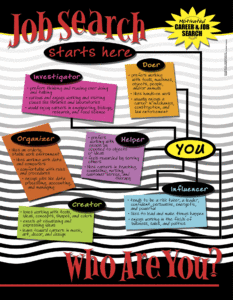
Reach us for Hiring the best candidates with the leading Recruitment consultancy at Hand Phone: +91 7795547089 or Email us at team@bssrecruit.com.
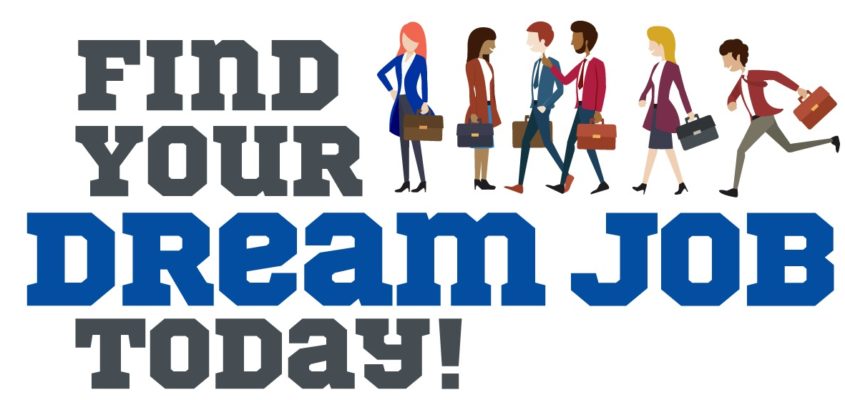
Finding your dream job with a leading and reputed placements and recruitment consultancy
Finding your dream job
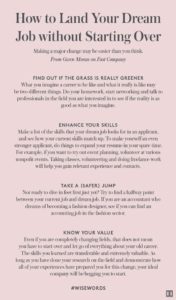
The trick of finding your dream job is an easy way to keep the passion alive with career growth growing.
Finding a dream job is not a hard task ahead.
Are you planning to turn yourself into a new career direction? Then, you might be very much excited about it. Whether you are in search of an opportunity in the current field or want to enter an entirely new career world, the excitement of a new career is often thwarted by the daunting task of job searching.
- Some candidates go through each and every job boards to find potential openings.
- Some put more time into perfecting the resume or sit around, waiting for the phone to ring?
But how will you figure out you are in front of the right employer?
To make your encounter with a hiring manager a piece of cake you should consider working with a recruiter. When working with a recruitment agency, you’re not alone in your job hunt. An experienced recruiter could match you with a job that requires your skills and expertise. Hence, you will not knock the wrong door.

Who is a recruiter?
Recruiters are a group of individuals who get hired by businesses looking for employees to fill their vacant chairs. They don’t find jobs for people. They find people for jobs.
However, you win several perks as a job candidate in a recruiter’s candidate pool. Given below are seven major reasons why you should use a recruiter for your job quest.
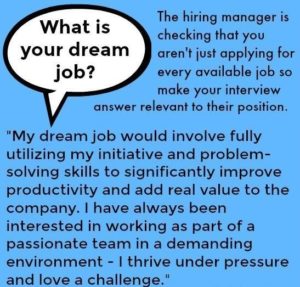
Seven major reasons why you should use a recruiter for finding your dream job
- Recruiters save you time.
How many hours do you spend searching for companies and sending applications? By using a recruiter, you split the load of work. Recruiters spend eight hours a day trying to find applicants for their clients. They know exactly what jobs are out there and they devote a large amount of time to fill them.
You have other responsibilities in life that keep you from job seeking. Mostly you might be working for your current boss until a new opportunity turns up. Or you could also be in school or college or taking care of your family. Using a recruiter saves a lot of time on your job hunt.
- You can network on a larger scale.
You may think about your current job-search connections, past employers, friends, and family. Even if that group is vast, it does not meet the amount that recruiters can reach. So, take advantage of a recruiter’s connections to get the best job according to your skillset.
When you send CV to an HR department, you rely on that document to get considered for the job. But if a recruiter feels you are a good match for their client, you have someone in your corner.
Recruiters pay a lot of time building relationships through databases, phone calls, and face-to-face networking. While working with a recruiter, your network grows exponentially.
- Recruiters help you through the process.
A good recruiter aims to provide the best candidates for their clients. Most of the recruiters will prepare you for the job placement process, from applying to accepting an offer. If you opt the right recruiter, most of your questions will get answered.
You can also update your resume, portfolio, and other documents with the assistance of a recruiter. They can guide you on interviewing techniques, and, after your interview with the employer, the recruiter can give you feedback.
- Recruiters want to place the best candidates.
Recruiters receive his service charges when you accept a job offer. So, they approach more candidates as a part of the game. Therefore, recruiters are competitive about picking out the best candidates who will satisfy their clients. That drive can only benefit you in your job search.
- You have access to more opportunities.
Do you know that not all open positions get posted on job boards? Some firms only post available jobs on their websites. But others strictly rely on third-party sourcing agencies to find potential candidates. You could be missing out a lot of opportunities if solely rely on job-search websites.
Recruiters can point you towards job openings that are hard to find. They can give you access to those confidentially advertised jobs or not yet posted on the internet. You will get more options to apply to, and have a better chance of receiving the job offer you want.
- You have specialized skills.
Certain job positions require a unique set of skills. Sometimes, there are fewer qualified applicants than the number of open positions.
For example, some locations have a hard time filling software developers. If you fall into an industry that necessitates specialized skills, you should certainly use a recruiter.
Recruiters know their clients very well, which means they can identify what kind of candidate fits the best to the client’s need. They can also give you even minute details about the company and the job position that you might not be able to comprehend from a normal. With a highly experienced recruiter, you are more likely to cross paths with an employer in need of your unique skills.
- You stay in a database.
Even if you didn’t get hired for the first potential match, you would stay in the recruiter’s database. Your resume will not get tossed if an offer doesn’t pan out immediately. Instead, you will get added on the candidate pool of the recruiter for future positions.
You might think your resume will get lost in a huge pool of candidates. But, that’s not the case. Recruiters employ applicant tracking systems that make sorting candidates easily. The software pulls out specific information from your CV and matches it to suitable jobs. Hence, your resume will surface when the right job opening comes along.
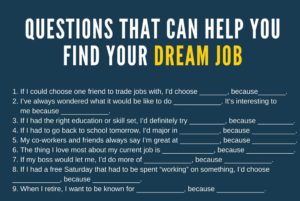
Reach us for finding your dream job with the leading Recruitment consultancy at Hand Phone: +91 7795547089 or Email us at team@bssrecruit.com.

Why Lying on Your Resume Is a Bad Idea

Lying on your resume is not a good idea. This may affect a candidate in the long run in his career growth.
The job market today is competitive. Those who are in search of job undoubtedly know how difficult it can be to compete for the top positions. This competitive environment has led a few job seekers to embellish or exaggerate their experience to improve their chances of obtaining jobs. What are the consequences for the employee who has embellished on his resume if he gets caught?
Lying on your resume is not more than a risk. It can have a life-altering impact when the candidates get caught by the recruiters. Read the blog further and know what happens when you lie on your resume, including a few hidden dangers and risks you might not be aware of.
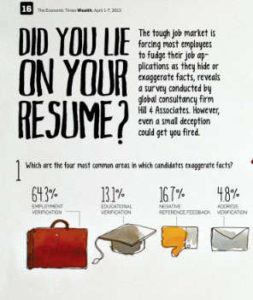
What happens when you Lying on your resume?
- Embellished job titles often sound bogus
One of the popular trends among candidates these days is to embellish their job titles. The basic idea here is that job seekers often worry about their current job titles as they are too mundane or unimpressive to grab the interest of a recruiter. Hence, they tweak those titles to make them sound more important. It seems bogus to experienced recruiters. So, adhere to the truth when it comes to your past job titles and avoids arousing suspicion.
- Your past references can poke holes in your present story
False job titles embellished lists of job duties, and inaccurate hiring dates may seem like things that could help your chances of getting hired. However, keep in mind that recruiters do call references. Even if you don’t mention an old employer, your previous boss is still likely to get a phone call.
Employers will verify the resume information of their most serious applicants. That may include a call to the HR department at the company you used to work. HR representatives won’t usually tell too much about former employees, but they will confirm or deny essential information like job titles, duties, and the date of hire.
This information can alone poke a hole in any story you are trying to fabricate on your resume.
- Verification checks can spot fake credentials like degrees or certifications
Calls to the previous boss and references aren’t the only verification checks that recruiters do. Many employers run a background check. Most of them will verify at least college degrees and professional certifications. If you lie about any detail on your resume, you will get caught for sure.
- Employers don’t like to hire liars
Put yourself in the shoe of an employer. Imagine that you are trying to fill an open position, and you want to recruit someone who will stick for a long time.
Would you more likely to take a chance on a candidate whose work history is thin but who seems passionate, smart, and friendly? Or would you more likely to hire someone who deliberately misrepresented his achievements and lied to your face? 100% of the time, recruiters will opt for the former, so don’t take the risk of being labelled a liar.
- You could end up under-qualified
Tailoring your CV to suit the job description is a good idea. But copying the skills and qualifications on the job description and pasting them into your CV if you don’t have those skills is not a good idea.
You don’t need a job for which you are not qualified. You will feel clueless, clumsy, and stressed out, and your bosses will notice it. Instead of trying to be something you are not, identify your best qualities and most marketable talents and find a job that you will be great at doing.
- Keeping all of your falsehoods straight is more arduous than it sounds
Telling the truth is easier than lying. Then, you don’t need to worry about repudiating yourself or casually saying something that brings your whole house of cards crashing down. Keeping all your lies is tough during the job screening process.
How will you manage to talk about a job that you never had in your interview? The worst part is, if you get the job, keeping your dirty little secret will only get harder. As lies pile up, it’s tougher to keep them straight. Save yourself the hassle and tell the truth.
Now, as you know what happens when you lie on your resume, you can decide it for yourself. Every situation is not the same, and telling the occasional white lie in the resume is something most of the candidates try.
However, in most cases, the risks of telling a big lie on your resume are not worth the potential reward. So, telling the truth on their resume is better.
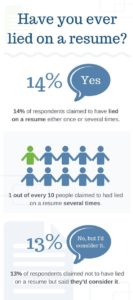
Reach us for Hiring the best candidates with the leading Recruitment consultancy at Hand Phone: +91 7795547089 or Email us at team@bssrecruit.com.
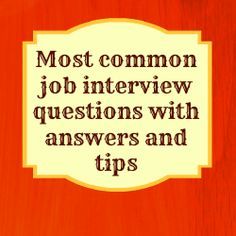
The perfect guide for nailing the most common interview questions employers ask
Common interview questions employers ask in an interview to candidates.A simple guide to answer the most common interview questions employers ask the employees.
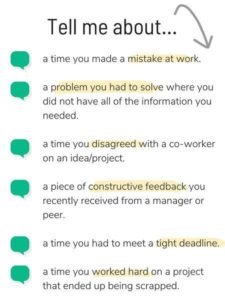
Interviews can be one of the challenging parts of trying to get a new job. When you’re selling yourself and your skillset, you need to have just the right answer for everything. You will get obvious questions like ‘why do you want to work for our team?’ to weird and wacky queries like ‘if you were an animal, what would you like to be?’ You should have a head start with the best answers. When you are not sure what interview questions you will get asked, it can be strenuous for you to get prepared.
Luckily, many recruiters ask the same or similar questions.
If you have an interview coming up, you can prepare by drafting responses to some of the most common questions. Read our tips from top interview experts and be more prepared at your interview than anyone else.
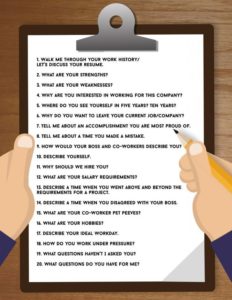
- Tell me about yourself?
Almost every interview will begin with this seemingly simple question, which is an ice breaker that meant to get you speaking. It’s an opportunity to introduce yourself. While you may get tempted to provide the interviewer with every detail about your professional and personal life, many aren’t looking for such a long-winded answer. They want to know whether your personality is a perfect fit for their company and see that you can handle the job. So keep your introduction precise and to the point. It’s not the time to recite your resume. Have a quick recap of who you are in a professional sense. Highlight what you’re most proud of, what suits the position best or what makes you right for the job. Your answer should focus on your professional experience and interests, and anything that shows you are the right candidate for the role.
- Why are you interested in this job?
Are you passionate about working for this organisation or are you just desperate for a job? The answer might be the latter, but it isn’t what most recruiters want to hear. They want to know that you are really interested in their industry and the firm. They want to see that you did fine research and you know about them and the role. It not only portrays that you are interested in the role but also speaks volumes about your professionalism and preparation.
- What are your greatest strengths?
It seems like an easy question as you know what you are good at, right? But be careful. Go through the job description carefully, and make sure whatever you say matches up with the way they have described the job role. Are they looking for candidates who are team players with leadership skills? Then, you should talk about your communication skills and public speaking. If you are anxious about coming across as cocky or arrogant, but the words in someone else’s mouth by telling them what people from your previous company have said about you. Another excellent tip is to use clear, measurable performances to back up you what you say – just ensure to have a relatable anecdote ready.
- What are your biggest weaknesses?
If you overshare here, you will potentially turn off a recruiter. Or else, if you say “I have no weaknesses, I’m perfect,” they will think you are a liar or completely lacking in self-awareness. So, what do you do?
Think about an actual weakness. But make sure you go with something that is not an essential requirement for the job. Explain to them how you became aware of it and are working on improving upon it. It shows that you are reflective, willing to learn, and striving to get better.
- Where do you see yourself within the next five years?
Job hopping is normal, and most employers know that people, especially young, ambitious people, are always looking for opportunities. You don’t, therefore, have to pretend that you’ll still be there in five years. Instead, tie in a dream job, ideally one at that company you can work towards with your passions, interests, and experience. It shows employers that you’re ambitious, driven, and looking for professional growth.
Every interview is different, but if you master these questions, you’ll get prepared to knock these cornerstone questions out of the park. Sometimes, a few exceptional answers are all you need to convince a recruiter that you are the one.
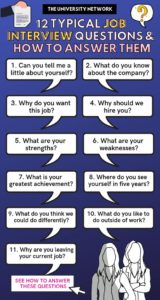
Reach us for Hiring the best candidates with the leading Recruitment consultancy at Hand Phone: +91 7795547089 or Email us at team@bssrecruit.com.

How to get prepared for your first job interview in the right way?
A first job interview is a maiden attempt by any candidate who is fresher in the job market. A few learning tips to be a topper in the first job interview.
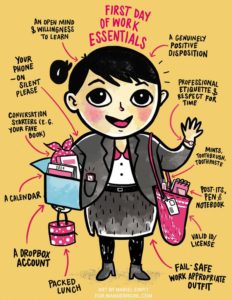
“A Job interview is like a first date. You dress up, pretend to be someone else and spend the time wondering if you are going to get screwed.”
— Azgraybebly Joslan
Finding and applying for a job might be a piece of cake with many job search websites. But when it’s time to face your very first interview, the thought can probably scare the hell out of you.
Fret not. Everyone newly arrives in the job market has to face their very first interview. You will probably approach it with the highest of hopes and confidence and possibly be in for a few surprises.
Preparing for a job interview needs more than just rehearsing your answers to some of the most common interview questions and answers. You never get another chance to make the first impression, so you should do your best in preparing for your interview in advance. Read the blog further to know certain things you must follow to make your first interview the best.
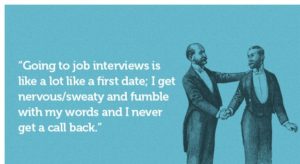
How to make your first job interview the best?
- Pick your outfit:
What you wear in your interview is a crucial part of how to get prepared for a job interview. After choosing your outfit, make sure it is cleaned and pressed, and you have the suitable accessories and shoes to go with it. You can try the outfit on ahead of time to ensure everything fits, and you look great. Then put the outfit aside for the interview day and have it ready to go. Now that you have this critical step out of the way, you can concentrate on the rest.
- Practice greeting your interviewer:
You should always greet your interviewer with a friendly smile and firm handshake. If you do this rightly, you will set off the right energy, and the chances of the interview going well will increase. It is a small and simple step that you should always to do to prepare for your interview.
- Study your resume thoroughly and know everything about it:
Any work expertise or skills you have listed on your resume are fair game to talk about during the interview. Your resume is all the recruiter has to go by to get to know you. They may pull things out from it and ask you to elaborate. Even though you may have a past job listed that was many years ago, the recruiter may ask you to describe what you did at that job, and you are responsible for presenting an appropriate answer. It is the one step you absolutely do not skip when you prepare for a job interview.
- Practice your answers to the most frequent interview questions:
If you have no idea about what these are, do fine research to figure out. Keep your answers ready and practice them. You should always be able to answer questions like
- Tell me about yourself.
- Why do you think you will be a perfect fit for this position?
The employer doesn’t know anything about you, so it’s up to you to sell it.
Don’t thoroughly memorize your answers, so they come out rehearsed but have a clear idea of what you are going to say. When they ask questions, your response should come out intelligently and naturally. Be open to other queries as well and know what you can offer to the company.
- Research about the firm and the job post you are applying for:
Write down any queries you may have, and you can ask them during the interview. If there any doubt regarding the job that you are unsure of, you should definitely ask during the time of the interview. It always looks nice to move into an interview with intelligent inquests. It shows you put endeavour into preparing for the interview. However, never ask just to ask questions. The interviewer will see right through that. Your questions should be genuine and relevant.
- Figure out the type of interview you will be going on:
There are numerous common types of interviews, such as one on one, group, and behavioural. So, never assume you will get a certain one. You can ask your hiring manager about the type of interview if you don’t have an idea about it. The interview will be more propitious to both parties only if you are well prepared.
- Print out the directions and be there on time:
Anticipate traffic and allow enough time to reach the venue. It’s ok to reach to ten minutes early, but no more than that. Or else, the interviewer may not be ready for you. Noting down the interviewer’s phone number will help in case you get lost or are going to be late. If you are reaching late, call and let the interviewer know about it.
Follow these useful tips, and you will successfully know how to prepare for your first job interview. Interviewers can easily identify whether a candidate has prepared for the interview or not. If you did, they would certainly appreciate it.
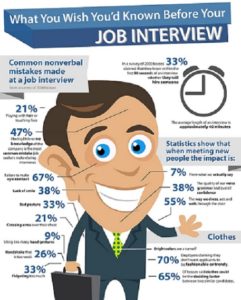
“Take the first step in faith. You don’t have to see the whole staircase, just take the first step.”
— Martin Luther King, Jr.
Reach us for Hiring the best candidates with the leading Recruitment consultancy at Hand Phone: +91 7795547089 or Email us at team@bssrecruit.com.

How your resume can stop you from landing on your dream job?
Landing on your dream job is quite an easy trick. Understanding of how the recruitment arena works will ensure the candidate is falling on his dream job.
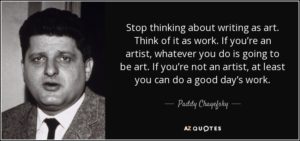
Many people often wonder why they never hear anything back after they attended an interview or send their job application to recruiters. If you’re fortunate, you might have a preliminary email exchange with a hiring manager and then never hear from them again. It’s a depressing experience, one which also adds a shadow on the reputation of the hiring company. So how does it happen? Is it because of you, because of them, or is it just something every candidate must prepare for in the hiring process?
If you are also one who is struggling to get interviews and landing on your dream job, your resume may be the culprit.
The competition for most jobs is intense, and recruiters are overwhelmed by a large number of resumes they receive for job openings. If your resume does not shine, there are chances that it will get passed over.
Want to a few reasons why you do not hear back after applying for a job? In this article, we have covered with five suggestions for ways to avoid the Resume Black Hole and how to get landing on your dream job.
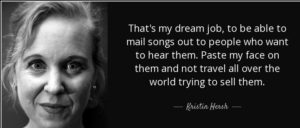
Five suggestions to avoid the Resume Black Hole
- No impact
You have about 20 seconds to seize your readers’ attention and hook them into reading more. It is common for hiring managers to look through several hundred resumes for just one job posting. With the odds stacked up against you, your resume must create impact and make an excellent first impression.
An employer wants to quickly figure out why they should invite you for an interview. If you are not providing this information clearly and compellingly, they will simply move on the next resume.
- Poor layout
Having a strong visual layout and appearance on your resume is just as powerful as the content. So be sure to use an appropriate format with distinct sections that allow the reader to find the information they are seeking quickly. A typical resume format will include the sections given below:
- Summary of Experience or Profile
- Significant Accomplishments
- Work Experience
- Education
- Training or Certifications
- Size matters
There is no set rule about the size of your resume, but conventional wisdom suggests that if you are a fresher or entry-level job seeker, you should have a one-page resume. If you have been working for over five years, then a two-page resume will probably make sense. You should make sure to include as much relevant information to convey your expertise in a way that demonstrates your fit for the job position.
Keep in mind that your resume isn’t your life story; if you find yourself going past page three; you should look for ways to pare it down.
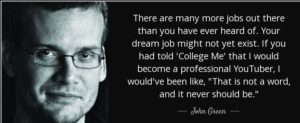
Remember, you only get about 20 seconds to make your impression.
- Lack of accomplishments
The accomplishments section on your resume is your chance to shine and connect with the recruiter. Nowadays, organisations are looking for the best of the best. So, this section will give them a clear picture of why should you be the one they hire. Many candidates have a difficult time pointing to significant achievements, so here are some questions to ask you.
- What are the problems have you solved?
- What are the policies or procedures have you devised?
- Have you been chosen to train other employees?
- What have you changed or improved anything?
- Have you exceeded your goals?
- Have you won any awards?
- Have you received appreciation from management or peers?
If you mention these points in your resume, you will stand out and will get chosen by the employers easily.
- Poor Grammar, typos and mistakes
Over half of all resumes contain at least one error (!).
When hiring managers are looking to screen out resumes, an error or typo can make all the difference. The impression that errors in resumes make is that you are a careless person and do not possess the attention to detail required in many positions.
Be sure to read your resume numerous times, run it through a spell checker and then have at the minimum two people read it over as well. It is also wise to print out a copy of your resume as you may pick out errors or typos that you may have missed while reading it on your computer screen.
Having a subpar resume can keep you away from getting the interview. So, get the format and the content right. Know what to include and what not to include. Don’t let a sucky resume stand between you landing on your dream job.
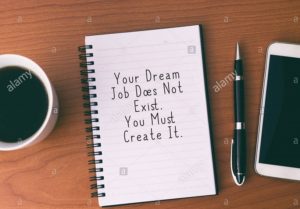
Reach us for Hiring the best candidates with the leading Recruitment consultancy at Hand Phone: +91 7795547089 or Email us at team@bssrecruit.com.
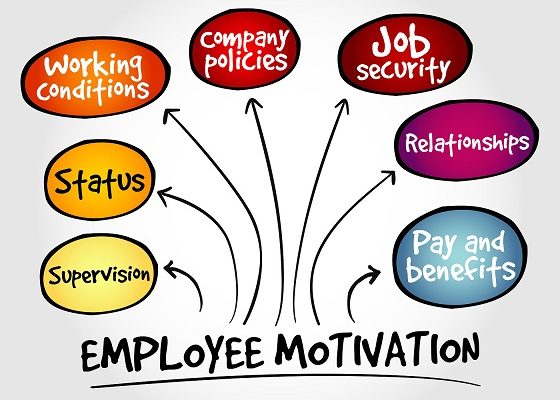
The key benefits of paying a competitive salary for top talents
Paying a competitive salary is an employers rituals to ensure his employees are giving their best in this competitive job market.
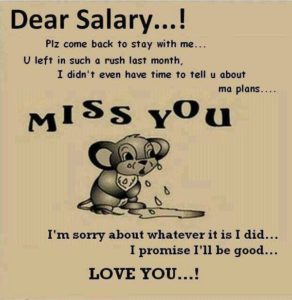
Your business may have an exceptional product or service. But the real strength of the firm lies with your people and top talent deserves to be well rewarded. While businesses need to cut costs and up returns, staff salaries should not be among the factors that keep on a tight budget. Because salary plays a crucial role when it comes to attract and retain the best people.
Employees are the prime aspect of any business. Where would your company be without them? As with training, benefits and salaries, your staffs are your most significant investment and what you put in influences directly on what you get back.
Strong staff salaries can deliver healthy returns. These are a few big reasons we think excellent salaries are worth it.
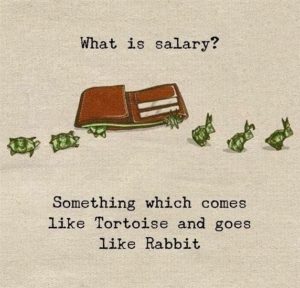
Four reasons why Paying a competitive salary is important
- Make them feel you know their value
Expecting staff to work hard for a cheaper salary than they would get elsewhere says one thing: you don’t appreciate their worth. Employee satisfaction is a principal player nowadays is why people apply for jobs. If people aren’t happy with your firm, they will look for a job hop. Nothing builds strong morale and work ethic, like feeling truly appreciated by your employer.
These are financial consequences that companies can avoid simply by instituting a competing salary policy. A high turnover rate also resonates poorly on a firm, impacting the collective knowledge base, and damaging staff morale.
So, ensure that the salaries you are offering are sending out the right message. You need to express that you are committed to your staff, that you appreciate them and that they get valued for what they do.
- Retention and attraction
In the skilled and professional jobs arena, the departure of an employee can cost their company more than double their annual salary. People think about job hop when they aren’t happy. Paying a competitive salary can not only attract the top-quality candidates that you need and keep the great staff that you’ve already got.
It is improbable that you will get qualified and highly skilled people applying to work at your firm when they are in high demand for good money elsewhere. If you offer attractive salaries, you’ll have the advantage of excellent candidates and the same vice versa.
- Investing in your assets
Like any investment, it takes some time to see a return. But providing benefits let your best employees stick with your business, which will pay off in the long run. Every firm needs people who will be there for the long haul.
- Those who can understand the business inside out,
- Can become a part of the growth and changes,
- And who are loyal to the company’s future.
Keeping up with salary trends and staying competing will assure you always keep a range of long-standing employees under your roof. A big win for employer brand is a big win for your investment.
- A competitive salary shows you care
Paying a competitive salary package incentivises ensures your employees to do their best for the organisation, promotes employee engagement and encourages loyalty. When you carefully construct salary policies, it shows you are committed to your team, and this in itself can be a great incentive for your staff.
Having proper salary policies is a tangible way for an organisation to show its commitment to taking care of its people. Your concern for the wellbeing of your staff filters through to office morale and productivity, and will hopefully get reciprocated if the business finds itself facing tough times.
An unhappy workforce cannot work properly. It can affect your business badly, bringing huge costs to your business. So, see your team as an appreciating asset and offer them the best. Because, satisfied employees who enjoy what they do become more valuable for your business over time as they acquire new skills, knowledge and experience.
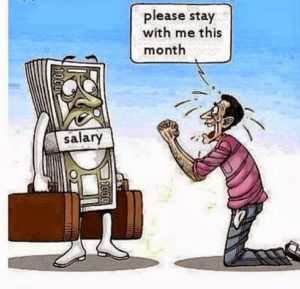
Reach us for Hiring the best candidates with the leading Recruitment consultancy at Hand Phone: +91 7795547089 or Email us at team@bssrecruit.com.
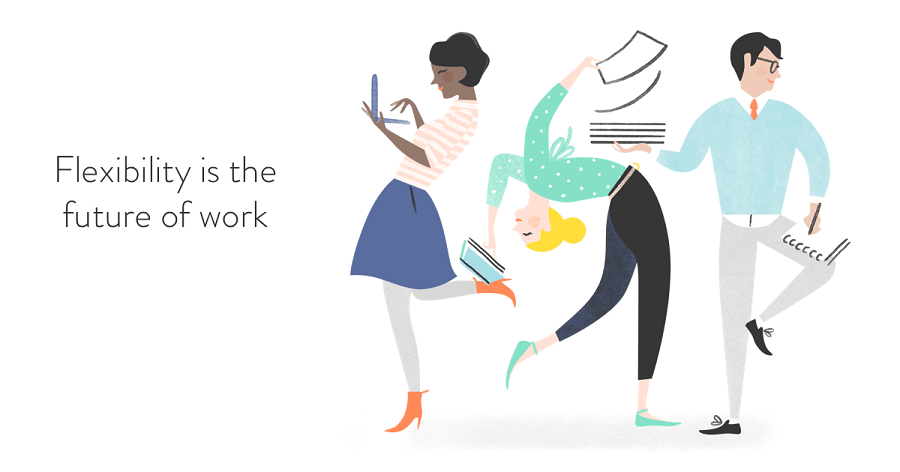
How offering a flexible working schedule for employees to benefit employers?
The flexible working schedule for employees is the new mantra for employers seeking to maximise the employees potential.
“In the right roles and with the right people, flex does offer tremendous productivity improvement. It gives people time to process properly, and it gets them out of the office in terms of being bogged down in day-to-day admin. So there is more thought leadership that comes to the table, and that’s where your creativity and innovation come in.”
— Osman Khan, Cofounder and CEO of Paddle8
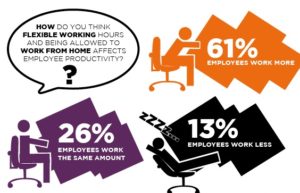
The flexible working schedule for employee sare among the essential things on the wish list of many employees. Nowadays, flexible working hours are becoming crucial due to the benefits it gives to employees and employers. Greater employee productivity and higher organisation profitability are the most common benefits of flexible working hours.
- Employees get the freedom to adjust their working hours and social life.
- It also helps them to plan the time they arrive and leave the office.
- It can be easy and possible, depending on the type of work and the discipline of employees.
The flexible working schedule for employees considers as one of the best perks an employer can offer. It is a way of appreciating people’s lives outside of work and trusting them to prioritise when and where they work on projects and complete them. The versatile working schedule doesn’t only benefit employees but employers too. Dive into the blog to know the five benefits of flexible working.
“People today really value workplace flexibility and remote work because it allows them to focus their energies on work and life as opposed to commuting or other complications due to geography.”
— Ken Matos, Vice President of Research, Life Meets Work

Five hidden benefits of flexible working schedule for employees
- Attracting talent
Recruiting and retaining talented employees is a topmost priority for almost every business to reach success. But, with today’s lifestyles, more professionals are looking for more flexible options. And the younger generation isn’t tied to the idea of a physical presence being necessary to get work done. So, offering flexible working hours can attract the best candidate for your business.
- Employee productivity
There is nothing worse than holding an employee at work who doesn’t want to be there. Why? Because they are absent-minded and not being productive. By giving people the ability to be in control of their own working lives, their productivity can improve drastically.
A study shows that productivity proliferates when an employee can work remotely from anywhere they are comfortable. For those working at home, they can manage their time wisely and might start working even earlier and finish earlier.
- Reduce staff turnover
Many employees who get flexible working opportunities see this chance as a sign that the company values them. It gives room to be more efficiently even when they are working remotely. Many employees will prefer to continue working in an environment that offers them such freedom. This factor will diminish the rate of turnover.

“We need to take a more flexible approach to both the workplace and the work we do; one that provides us both the physical and cognitive space to harness the incredible power, insight and experience we offer, but focused not on the individual processes but instead on the overall outcomes our organisations are seeking to achieve.”
— David Coplin, Chief Envisioning Officer of Microsoft UK
- Increases Room for Creativity
Happy and satisfied employees are those who get the chance to work on a flexible time schedule. It proffers a room for thinking outside the box and be more innovative. Although it might not be the case for some employees, spending a long time in the same ambience can limit the creative possibilities. A change of work environment can be a catalyst for creativity to employees.
Depending on work processes, some employees get more actively involved in ongoing projects or general working culture when they reach the office at flexible times. It is the reason employers should consider the nature of work and the type of employee when arranging flexible hours.
- Supports Employees Well Being
One of the critical benefits of flexible working hours is it boosts employees’ morale and improves their physical and mental wellbeing. The wellbeing of the employees is a severe concern for many employers, and implementing flexible working schedule can secure employee wellbeing. When employees have adaptable working hours, they are likely to be less fatigued. Spending a few hours at work can also prevent burnout and stress that can be the result of toxic workplace culture.
The appropriate use of flexible working hours can benefit both employees and employers. Employers are more concerned about how millennials are adjusting to working lifestyle. For millennials, work-life balance is an essential factor when choosing their jobs.
Millennials are creative and have potentials to do better than other generations; this might be due to current advances in technology that enables more work to get done more efficiently. So, with flexible working hours, much can be accomplished by the employees who will get the chance to experience that. With this, they can work harder than ever to deliver results.
“Technology now allows people to connect anytime, anywhere, to anyone in the world, from almost any device. This is dramatically changing the way people work, facilitating 24/7 collaboration with colleagues who are dispersed across time zones, countries, and continents.”
— Michael Dell, Chairman and CEO of Dell
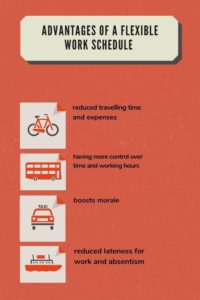
Reach us for Hiring the best candidates with the leading Recruitment consultancy at Hand Phone: +91 7795547089 or Email us at team@bssrecruit.com.
End of content
No more pages to load




